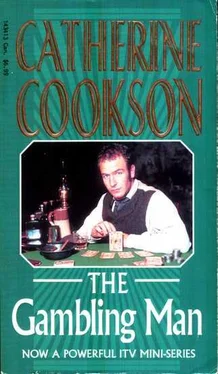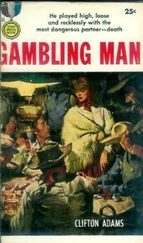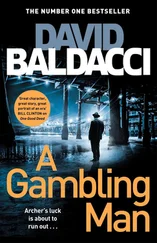The County of Durham was a hotbed of such people. They agitated in mines, in steel works, in shipbuilding yards, in factories, and it was even whispered they tried to inveigle young women into their ranks; and not only those, let it be understood, from the common herd, but women of education and property.
Such a one who was suspect in South Shields was Miss Charlotte Kean. She wasn’t accused openly of supporting trade unions because then that would be ridiculous, for she not only held shares in some quite big concerns but owned outright a number of small ones. No, they weren’t accusing her of giving her sympathy to the quarter that would eventually precipitate her ruin through business, but what they did say was, she pushed her nose into too many cultural activities in the town, activities that had hitherto been inaugurated and worked mainly by gentlemen, such as the Public Library that had been opened four years previously.
This grand building could boast its eight thousand two hundred volumes only because of generous donations from men like the Stephensons, and Mr Williamson, and Mr Moore. What was more, the library had grown out of the Mechanics’ Institute and the Working Men’s Club, and this joint establishment had its origins in the Literary, Mechanical and Scientific Institution which was one of the earliest mechanics’ institutions in the kingdom, having come into being in the November of 1825.
And who had created such places of learning? Men , gentlemen of the town, not women, or even ladies. Why the efforts of the gentlemen of the town had made The Working Men’s Club and Institution so popular that in 1865 they’d had to seek new premises yet once again, premises large enough to contain now not only a newsroom and library but two classrooms and a conversation and smoking room, besides rooms for bagatelle, chess and draughts, and, progress and modernity being their aim, a large space was set off in the yard for the game of quoits.
For such progress men, and men only, could be given the credit. But now there were people like Charlotte Kean pushing their way into committees und advocating, of all things, that the library should be open seven days a week. Did you ever hear of such a suggestion that the Lord’s Day should be so desecrated! She had been quoted as saying, if the wine and gin shops can remain open on a Sunday why not a reading room? One gentleman had been applauded for replying that God’s house should be the reading room for a Sunday.
Then there was the matter of education. She would have made a ruling that no fee be charged for schooling and that a poor child should have admission to a high-class teaching establishment merely on his proven intelligence.
Some gentlemen of the town were amused by Miss Kean’s attitude and said, Well, at least credit should be given her for having the mentality of a man. However, the majority saw her as a potential danger both to their domestic and business power. To light a fire you needed tinder, and she was the equivalent to a modern matchstick. Look how she was flaunting all female decorum by parading that upstart of a rent collector around the county. Not only had she made him into her manager but she took him everywhere as her personal escort. She was making a name for herself and not one to be proud of. By, if her father had still been alive it would never have happened. He had made a mistake by allowing her to become involved with the business in the first place, because she had developed what was commonly termed a business head. She was remarkable in that way. But they didn’t like remarkable women, neither those who were against her nor those who were for her. No, they didn’t hold with remarkable women. This was a man’s town, a seafaring town; women had their place in it, and they would be honoured as long as they kept their place; but they wanted no remarkable women, at least not the kind who tended to match them in the world of commerce.
Her manager, too, had his reservations about his employer, and the things she got up to. Yet he granted, and not grudgingly, that she was a remarkable woman. Odd in some ways, but nevertheless remarkable.
A year had passed since the news of Janie’s death and the old saying of time being a great healer had proved itself true yet once again, for Rory, over the past months, had come up out of despair and settled on a plane of not ordinary but, what was for him, extraordinary living.
Though Janie still remained in his heart as a memory the ache for her was less. Even in the night when he felt the miss of her he no longer experienced the body-searing agony and the longing for her presence.
Two things had helped towards his easement. The first was the combination of Jimmy and the yard, and the second—or should he have placed her first?—was Charlotte Kean.
When, six months ago, he had taken up the position as her manager she had raised his wage—salary she called it now—to three pounds a week. It was incredible. Never in his life had he dreamed of ever being able to earn three pounds a week. To get that much and ten times more by gambling, oh yes, he had dreamed of that, but never as an earned wage. And did he earn it? Was the work he was doing worth three pounds a week, going to the town office in the morning, then around ten o’clock up to the house and the office there, he at one side of the table, she at the other?
‘What would you advise in a case like this, Mr Connor?’
The first time she had pushed a letter across the table towards him he had stared at her blankly before reading it. It was from her solicitor advising her that a certain new chemical company was about to float its shares, and suggesting that she would do well to consider buying.
Utterly out of his depths Rory had continued to stare at her, for he sensed in that moment that a great deal depended on how he answered her. And so, holding her gaze, he said, ‘I can’t advise you for I know nothin’ whatever about such matters;’ but had then added, ‘as yet.’
She hadn’t lowered her eyes when she replied, ‘Then you must learn . . . that is if you want to learn. Do you, Mr Connor?’
‘Yes . . . yes, I want to learn all right.’
‘Well, that’s settled,’ she had said. ‘We know now where we stand, don’t we?’ And then she had smiled at him, after which she had rung the bell, and when Jessie opened the door she had said, ‘We’ll have some refreshment now, Jessie.’
And that was the pattern he followed on the days he didn’t go to Hexham or Gateshead or over the water to Wallsend to cast an eye over her interests, until two months ago, when the pattern had changed and she began to accompany him.
Journeying by train, they would sit side by side in the first-class carriage. He helped her in and out of cabs, he opened doors for her, he obeyed her commands in all ways, except that he would refuse her invitation to stay for a meal after he had delivered the takings of an evening, or when they had returned from one of their supervising trips. The reason he gave was a truthful one, his brother expected him, he was alone.
When he first gave her this reason she looked at him with a sideward glance and asked, ‘How old is your brother?’
‘Coming up twenty.’
‘Twenty! And he needs your protection at nights?’
And he answered flatly and stiffly, ‘Yes, he does. Only last week a boat he had started to build was smashed up to bits, and it could be him next.’
‘Oh!’ She showed interest. Did you inform the police?’
‘No.’
‘Have you any idea who did it, and why?’
‘Yes, both; I know who did it, and why. There’s a family on the river who run the wherries, three brothers called Pittie . . .’
‘Ah! Ah! the Pitties.’ She had nodded her head.
‘You’ve heard of them?’
Читать дальше


![Дэвид Балдаччи - A Gambling Man [calibre]](/books/384314/devid-baldachchi-a-gambling-man-calibre-thumb.webp)









